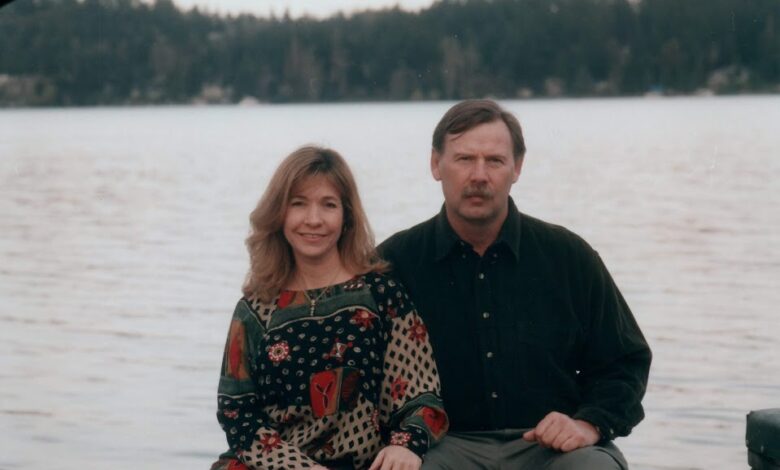Interview: Ken Williams returns to video games in Colossal Cave
Ken hints that the team is looking at a November launch!

After selling Sierra On-Line and being away from game development for nearly three decades, we learned in March that Ken and Roberta would be making their grand return to video games by returning to their roots. With Colossal Cave – Reimagined by Roberta Williams, the duo plan to preserve what made the original title so special, while reimagining it with 3D graphics and virtual reality compatibility.
Then, two weeks ago, we also learned that Colossal Cave – Reimagined by Roberta Williams will also hit Nintendo Switch.
Therefore, as we await the game’s fall launch for Meta Quest 2, PC and now Nintendo Switch, we at Mega Visions would like to share the next part of our exclusive interview with Ken and Roberta. In this part of our mini-series, Ken shares his journey on how he found his way back into the gaming industry.
How the curiosity of 3D gaming sparked the beginning of a legendary return
Mega Visions: So, what was it like learning the Unity 3D Engine? Were there any challenges you faced learning the new software?
Ken: Where do I begin? I’ve never wanted to lose my programming skill. And I always, even in the old days, was enamored by 3D and being able to move through a 3D world.
With Sierra, I was trying to move us in that direction, which is part of why I acquired Dynamics and Papyrus, and other companies that were doing a lot in 3D. Part of the vision was to bring that technology to King’s Quest.
Ultimately, you want to be able to draw people into the game by making it more immersive the way you can in 3D. I mean, I can’t imagine a car race game in text. It wouldn’t be very exciting. You do it in 2D, it gets a little better. But when you’re physically sitting in the car, like in a VR world, then it gets really exciting.
Back in my day, when you go back to the Sierra days, it just wasn’t possible. We tried to do it with Phantasmagoria, and we had to kind of cheat and pre-render the backgrounds and drop the actors in. We tried with King’s Quest VIII, and it didn’t really work too well.
So, there was a part of me that just wanted to learn and also wanted to see what a game could be like. None of this would have happened if not for the pandemic. I was bored, sitting home, needed a project and decided to write a book about Sierra. The book exceeded all expectations. I thought it would sell like five copies, and suddenly it sold 30,000 copies the first few weeks. I went, “Wow! There’s still people that remember Sierra.”
Given that most of the people playing games today weren’t born yet when we were making games, that seemed kind of wild. So, after the Sierra book sold so well, I said, well heck, maybe I’ll try writing a game.
Diving into a 3D frontier with Unity
Ken: That led to me learning Unity. Some of the beauty of Unity is the budding environment and how easy it is to step through code, and how little code you have to write to do great things. You know, my first reaction was kind of like, Sierra did all of our games using a proprietary language we developed internally. In fact, Roberta at the time was pushing us, saying that we should market our programming tools as if it was a product.

You know, Unity in effect has done that. It’s something like what our SCI, we called it for Sierra Creative Interpreter, evolved by another 25 years. So, it felt right at home.
So far, there’s nothing we wanted to do that we haven’t been able to do. You know, I’ve never used the Unreal Engine, so how to compare the two, I really can’t do. But Unity, we’ve had no problems—we’ve had problems with framerate, but it’s the kind of problems you expect and are tied to the hardware, not the programming language. But we got through it.
How a pet project turned into a legendary return to game development
Mega Visions: So, Roberta was telling me a lot about how this project began as sort of a small, fun project. How did the process go of Colossal Cave – Reimagined becoming a bigger project as it is today?

Ken: Kind of, I didn’t, and I never really wanted to. Marcus, who had partnered on the game with me at the beginning, had grand aspirations. Whereas, I’ve kind of been there, done that with running a big company and running a publishing company. Sierra had 1,000 employees, and we were on NASDAQ for like eight years or something like that.
So, I was kind of burned out on running a big company and never wanted wanted to manage people again. You know, the last thing I want, in some ways, is for this to be a big success. I’m going to take the pleasure out of this game in that people smile when they get it. I don’t want to lose money on it, but it’s not going to change our lifestyle one way or the other. I really built it just so that players would have fun when it’s done.
For Marcus, it was a different animal in that he really hoped out of this would grow a big company that he could be part of. So, he started pitching hardware companies. Most of the people in senior management at these companies these days played Sierra games as a kid.
So, we’re finding that the average indie developer, probably, if they called Unity, and said, “we’re doing something cool. Why don’t you take a look at it?” they’d be lucky to get a real human on the phone. Whereas, in our case, we get disproportionate attention.
I mean, hopefully, we merit it. But I can honestly say that there are companies that automatically signed us up and are enthusiastic to work with us, that probably for the average indie developer, cannot get a return call. So, we’re fortunate in a lot of ways but also suddenly getting all the attention.
The importance of legacy in the gaming industry
Ken: I thought about, when I was developing the game at first, just releasing it under a pseudonym. I was going to release it as kind of a “John Doe Software” or something because I didn’t really want all the attention. Then, once people did start paying attention, the thing just kind of mushroomed.

We realized that, more than even the money, is something called legacy and how you’re remembered. As most filmmakers or actors will tell you, you’re only as famous as your last picture. I’m sure authors are the same way. You can do a few great things, and you write a turkey book, and it’s all over.
Especially with Roberta getting involved, there’s no way she wanted to damage our legacy. Well, suddenly we knew that we got to ship ahead, no matter what we do. We don’t have the latitude that other people might to go out there and ship a dog. We are committed.
If somebody had told me at the beginning that I was going to do a couple years of my life working 12 hours a day, seven days a week, I would’ve said, “Hell no!” But once we kind of get into it, it’s kind of like a freight train. You can’t get off; you got to do it until you have a successful product.
So, we say November, but if we get out to beta test, and people aren’t loving it, then we’re not going to stop. So, ultimately, if you see the game hits the market, it’ll be because it’s worth playing. That part we know.
How a global pandemic spawned a new beginning
Mega Visions: That’s great, and I love hearing that you care so much about doing it right. It’s also just amazing to hear that you’re back in it and having a good time returning to game development!

Ken: Well, you got to do something. And actually, a lot of people bugged me for a lot of years to write the Sierra story. I don’t know if you saw my book, but it turned out good. I was kind of pleasantly surprised, and it was well-received.
We were kind of, I wouldn’t say burned out, but we were just angry at the situation when we sold Sierra. You know, we spent 20 years building a great company. I used to tell everybody that my goal was to have a company that my grandchildren would play their games, and their grandchildren.
We created a consumer brand that is still recognized, I mean, 30 years after the company shut down. So, at the time we sold the company, I was excited and happy and thought it was going to live forever. Then, it turned out I sold it to crooks. And they screwed up the company, and it was dead within a year.
That kind of disaster really kind of sours you on things. So, there was a long time where Roberta and I, the last thing we wanted to think about was computer games. It’s taken a long time for us to say, yeah, okay, it’s time to get involved again and start doing it.
But it’s like riding a bike. You know? We built, oh I don’t know, somewhere over 200 games. So, we’ve been through the drill.
Colossal Cave – Reimagined by Roberta Williams journeys out this fall!

Colossal Cave – Reimagined by Roberta Williams is developed and published by Cygnus Entertainment. It launches for Nintendo Switch, PC and Meta Quest 2 this fall. For an even narrower window, Ken and Roberta estimate it will release in November.
You can also play the original Colossal Cave Adventure for free on Cygnus Entertainment’s official website. You can experience the game that started it all for yourselves today with the fully-embedded text game!
In case you missed it, be sure to check out Part 1 and Part 2 of our exclusive interview series with Ken and Roberta! What do you think about Colossal Cave? Are you excited to see the game’s reimagining by Ken and Roberta Williams? Have you played the original text adventure? As always, share your thoughts with us in the comments!

